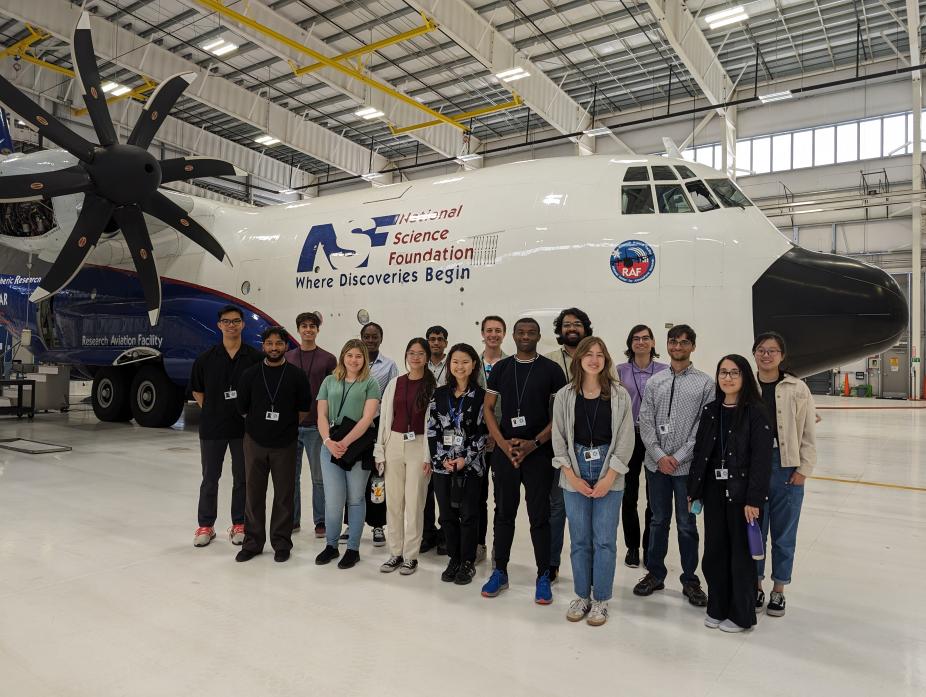Dynamic SIParCS intern group begins Summer 2024 internships
by Shira Feldman
On Monday, May 20, 16 new interns arrived at the Mesa Lab in Boulder, CO, to lend their collective brainpower to the 2024 Summer Internships in Parallel Computational Science (SIParCS) program. SIParCS is sponsored by the Computational and Information Systems Lab (CISL) at the National Science Foundation's National Center for Atmospheric Research (NSF NCAR).
On their first day, the students met with their mentors to begin their 11-week internships, which will conclude August 2 with their project presentations. This year, SIParCS interns will carry out projects in artificial intelligence, machine learning, data assimilation, cloud insights, and more.

The Summer 2024 group includes eight undergraduates and eight graduate students selected from a pool of more than 220 applicants.
This year's SIParCS cohort is especially far-ranging. Their 15 different colleges and universities represent an educational cross-section— including public and private schools, community colleges, liberal arts universities, research institutes, and minority-serving institutions.
Geographically, the group hails from across the country and around the world:
- Nationally, the group includes students from the states of California, Illinois, Indiana, Massachusetts, Nebraska, New Jersey, Ohio, Pennsylvania, Tennessee, Texas, Vermont, and Wisconsin.
- International SIParCS students originate from locations as widespread as Bangladesh, the Democratic Republic of Congo, Ghana, Viet Nam, Hong Kong, and India.
Furthermore, this year's SIParCS group includes five first-generation students, meaning that their parents did not complete a four-year college or university degree. Considering the high degree of educational achievement that the SIParCS program represents, their participation is a notable milestone.
The group also includes one intern returning to SIParCS for a second time, participating in the internship program first in 2020 as an undergraduate, and now again as a graduate student.
Over the past 17 years, the SIParCS program has embedded more than 230 students in CISL activities, including some in collaboration with other NCAR labs, to provide them with significant hands-on experience in high-performance computing (HPC) and related fields that use HPC for scientific discovery and modeling.
This year, students are working on a wide range of projects: for example, testing and optimizing a machine learning numerical weather prediction model; developing computing protocols for a low-cost Internet of Things (IoT); and training large language models (LLMs) to enable efficient processing of holographic data.
In the photograph above, the SIParCS interns are as follows.
- Back row, left to right: Tri Nguyen, Thomas Sorkin, Eva Sosoo, Adi Dendukuri, Jeff Boothe, Abrar Hossain, Andy McKeen, Kamil Yousuf, and Rachel Tam.
- Front row, left to right: Suman Shekhar, Analiese Gonzalez, Anh Nguyen, Anh Pham, Arnold Kazadi, Sophia Reiner, and Mara Ulloa.
For a full description of the projects, the students, and their mentors, visit the SIParCS page.